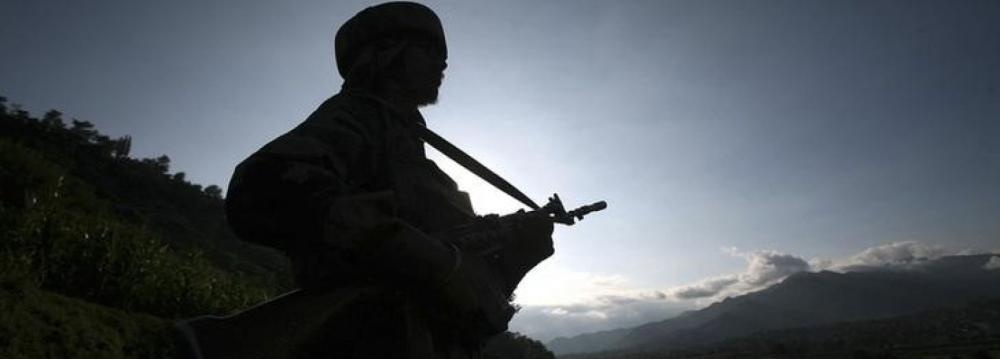At least one civilian was killed and dozens of others wounded during protests in Indian-administered Kashmir that erupted after a gun battle between fighters and security forces.
Police said the firefight on Thursday started after Indian soldiers and police cordoned off the southern Arwani Village, and gunmen hiding there, opened fire in an attempt to break through the siege.
As the shootout raged, thousands of people from neighboring villages ignored government orders to stay away and marched to Arwani in an attempt to help the trapped fighters escape, Aljazeera reported.
A police officer said protesters tried to storm the site of the gun battle, leading to fierce clashes at several places around the village.
Witnesses said security forces fired live rounds, shotgun pellets and tear gas to disperse the rock-throwing protesters, killing a young man and wounding at least 40 others.
A police statement said the man died after being hit by a stray bullet. One injured civilian was in critical condition.
Clashes were also reported in several other areas of southern Kashmir in a show of solidarity with rebels who have been fighting against Indian rule since 1989. Earlier on Thursday, authorities blocked mobile and Internet services in some areas of southern Kashmir to stop activists from organizing anti-India protests.
The Muslim-majority Himalayan region of Kashmir has been divided between India and Pakistan since independence from Britain in 1947, but is claimed in full by both.
Attacks against Indian security forces have increased in recent months, although raids in the Hindu-majority Jammu area of the state are less common. Indian and Pakistani cross-border firing along the heavily militarized Line of Control has intensified as tension between the nuclear-armed neighbors has risen.
Kashmir has been gripped by protests since security forces killed a popular separatist leader in July. A crackdown in response to the protests has paralyzed much of the region.
Indian security forces have also been accused of blocking medical treatment for wounded protesters in the disputed region by holding up ambulances and harassing hospitalized patients.
Physicians for Human Rights said not only did police and paramilitary forces use excessive force during months of unrest, they also hindered people from seeking medical attention, increasing the likelihood of permanent injuries and deaths.
“Such delays in care are violations of the longstanding protections afforded to medical workers and facilities in times of conflict and civil unrest,” said Widney Brown from the New York-headquartered advocacy group.


